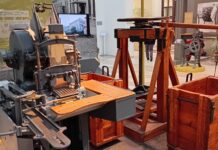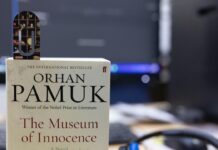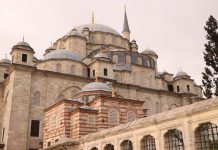It’s hard to miss the Trump Towers in Istanbul.
The twin tower complex, bearing the signature brand name in large letters, commands your view as soon as you get off the metrobus in Şişli-Mecidiyeköy. All around, in the nearby business districts of Levent and Maslak, stand other skyscrapers, visual reminders that this is a very modern city busy getting on with the 21st Century. The great mosques, the Bosphorus, the cisterns – the historical stuff the tourists come to see – are far away.
And yet, in the shadow of Trump Towers stands the neighborhood of Kuştepe, one of the city’s more disadvantaged areas, a reminder that much work remains to be done in this ever-changing metropolis.
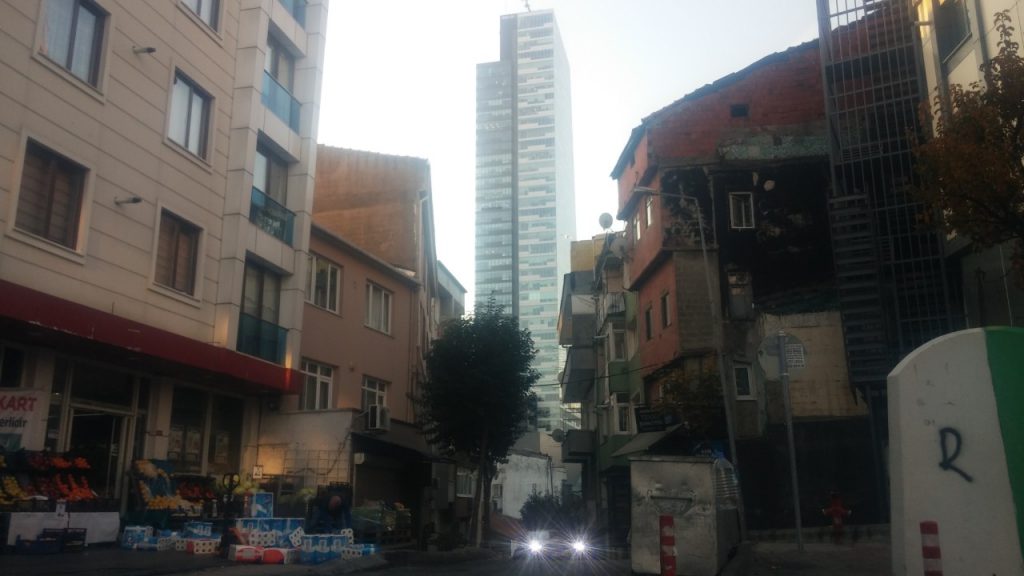
When I first started at the university this past fall, I was excited for many reasons. A new job, a chance to work in the heart of the European side (most of my time here has been spent on the Asian side), and the energetic vibe of a university environment.
The first day I arrived, I got off the metrobus and walked down the hill past the Trump Towers. Using Google maps, I navigated through the narrow streets in search of the university, which was somewhere close by. Trudging up a steep hill, I wondered if I’d gotten lost, for I found myself suddenly surrounded by rows of ramshackle buildings.
At what appeared to be a plaza, a lone minaret from the local mosque rose, overlooking the standard bakkal, and nearby were other Istanbul staples – the kuaför, tea cafes, cheap-looking restaurants. I was hardly apprehensive – the city is full of such run-down neighborhoods. In fact, my previous job had been in a neighborhood that looked almost identical.
Still, it was a bit disappointing, to be honest. I’d naively expected the neighborhood to be more collegiate – you know, rows of funky cafes and bookshops, perhaps a few artists’ studios or galleries, a boheme chic. But instead, it was just another beat-looking shantytown.
I asked some local guys for directions, and they nodded and pointed. Presently, there it was, the campus complex. It seemed almost to be located on an island. Passing security, I entered the campus. In the courtyard, students were sitting at picnic tables enjoying coffee and smoking, chatting, checking their phones.
I went about my day, absorbed by my new colleagues, students, responsibilities, learning the lay of the land. But over time, the thoughts lingered, the incongruity, the contrasts. Each day, I’d walk past Trump Towers, up the hill to the university. Sometimes, though, I’d stop at the top of the hill (Kuştepe means “bird hill”) and just reflect: how was it possible that this neighborhood could remain so poor, so neglected? You would think that the university, not to mention the nearby Trump Towers, would somehow “elevate” the neighborhood. Isn’t that the way it’s supposed to work?
****
The university students come from all over Istanbul, from and well beyond. Many are Arab students from neighboring Middle Eastern countries, so they have the dual task of learning English and Turkish, along with adjusting to life in a new country. They go to the Kuştepe campus for the English prep program. Next year they will transfer to the Santral Campus to begin their majors.
The students are not too enthusiastic (that’s putting it mildly) about coming to Kuştepe every day. First of all, most fail to see why they have to waste time learning English (though they grudgingly admit that it’s a “global language”). And whatever color the neighborhood may have is largely lost on them.
“It’s dangerous!” they say.
“It’s dirty!”
“It’s scary!”
“It’s shitty!”
These are the most common adjectives they employ to describe their impressions – whether for Kuştepe or learning English, I can’t say. Maybe both.
****
A word or two about Trump Towers-Istanbul is probably in order.
According to the official website, the complex was built in 2012, and the opening was attended by the Donald himself, and his daughter Ivanka.
Does Trump himself make money from the complex? Apparently he does. According to an article published this past October in FastCompany.com, “Financial disclosures suggest he’s pulled in between $3.2 million and $17 million from the arrangement with site developer Aydin Dogan since he first launched his presidential campaign.”
At any rate, the complex consists of two towers, one which is office space and the other other residential, and a 62,350 square-meter shopping mall. The residential building also features a lounge, complete with a library, bar and fireplace. There’s even reportedly a wine cellar.
“Enjoying the reputation of being the first Trump project in the region,” the site boasts. “Istanbulians (sic) are welcomed with special ‘white glove’ concierge services at Trump Towers Istanbul.”
It’s doubtful any of my students enjoy the “white glove” services. Instead, as I said, they prefer the more efficient delivery of KFC, Arby’s, Burger King and other fast food available at the food court. The campus offers a cafeteria, a coffee shop and a restaurant, but every day at lunchtime you hear the students calling out to each other, “Trump?” and they head off together for the complex down the street. Makes sense: If I were them, it’s probably what I’d do. Who wants to eat lunch at school? Not cool, kanka.
Actually, it’s only about a five-minute walk from the campus to Trump Towers. So most mornings and evenings, I prefer to just walk, rather than sit on the bus and wait for it to fill up.
Maybe that’s because I’m older, or that in my travels I have seen worse places. Anecdotally, students will talk about the neighborhood’s crime problems, drugs, knife-wielding thugs, muggers. Touch wood, but I’ve walked back and forth many times along the streets of Kuştepe, and have hardly had so much as a glance tossed at me. The locals, who are a mix of ethnicities, mostly Romani, reportedly Black Sea and Kayseri variety, seem long accustomed to the university’s presence. Why not? It’s been there since 1997, so you’d think they’d be used to it by now. At any rate, we seem to mutually ignore each other, the locals and the university folk, or merely coexist.
The only time these worlds seem to intersect is at the end of the day, when the road outside the university is crammed with students waiting for the buses, and locals are trying to get past in their cars. Occasionally, a local will toot his horn exasperatedly and zoom past, but that’s about it.
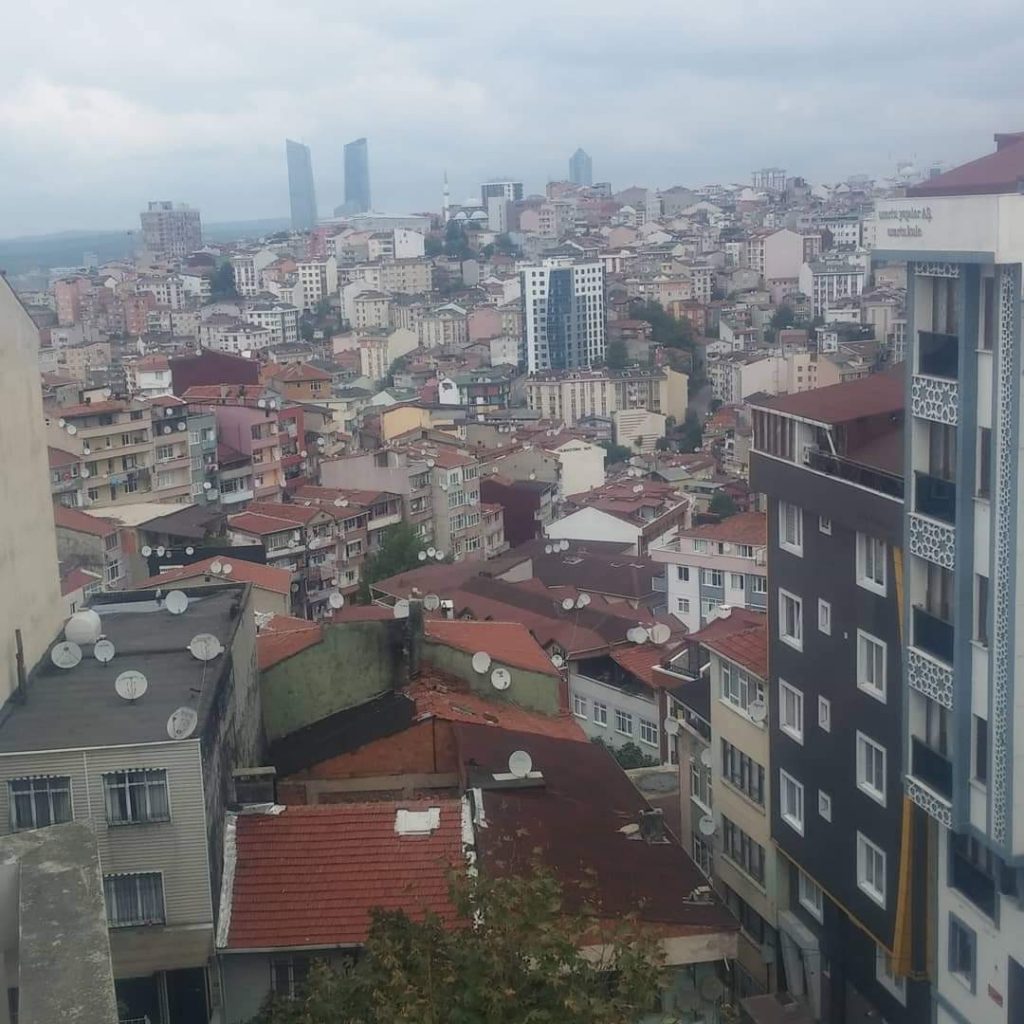
Approaching this story, I was well-aware that I knew very little about Kuştepe itself. One day I did a Google search, and came up with a story written back in 2016 by Başak Damla Gülkan, a self-described “reader, walker, traveler of Istanbul.”
It was interesting reading, and there was some actual research. Gülkan’s story, “Kuştepe: Nest of Crime or Not?” is a kind of survey of the neighborhood. She interviews the local muhtar (headman) as well as a grocer, and others. According to Gülkhan, Kuştepe was a demolished gecekondu (shanty town), a product of 1950s municipal policy in which many houses deemed unsafe were knocked down and the locals forced to relocate.
This passage was a bit confusing. Does that mean the neighborhood was demolished and rebuilt later? If so, when? If it was rebuilt (say, in the 1950s) then judging from its present condition, the neighborhood would appear to be due for yet another makeover.
Still, it was reassuring to read that Gülkan’s experiences jibed with my own (admittedly superficial) impressions. She describes the locals as “friendly” and not dangerous the way they are stereotyped to be, although there could be incidents of xenophobia, not taking well to outsiders.
The author also spoke with the local municipal authorities, who indicated there were plans for an urban renewal project in the neighborhood. That was three years ago, and from what I personally could see, not much has changed since then. Of course, the past few years have seen a failed military coup attempt, followed by an economic crisis (the lira has fallen to 5-1 against the US dollar), not to mention the ongoing situation in Syria, so priorities have been elsewhere.
At the end of her story, Gülkan concluded:
“Find someone who lives there for a while is enough. Most of settlers normalize “the voice of siren that belongs to police cars… However, we could not define as a place that attracted by police is as a “nest of crime”. Shortly, Kuştepe is not a “nest of crime”; It is a poverty-torn area that fosters space and reason for crime; there is little opportunity for education and a different way of life. The interventions that have tried have failed, thus it remains forgotten.”
****
When I first started at the university, I worked the early shift, so I usually arrived at Trump Towers around 7 a.m.
I had an unspoken agreement with one of the service bus drivers. If I could make it just before 7, he’d give me a lone lift in the bus up the hill to the school, where he picked up some early commuters. But as often as not, I’d just miss him, and thus have to walk up the hill through the early morning streets of Küştepe.
It was still dark at that hour, but the streets were mostly silent, most of the shops not even open yet. By my own account, it wasn’t so bad. And while doing this story, I ventured down a couple streets in search of some photo opportunities.
At one point, an old guy, obviously a local and recognizing me as a foreigner, a yabancı, stopped and turned.
“You live around here?” he asked, in Turkish.
“No,” I said, indicating my phone. “Foto sadece.”
“Ah! Foto!” He nodded and went on his way, probably wondering why the hell this yabancı was taking pictures in his neighborhood. You don’t get too many tourists this way.
At lunch, I mentioned it to a colleague.
“Yeah, well, be careful,” he said. “One of the other teachers did that a while back and apparently some guys started bothering him. I mean, don’t go too far.”
Point taken: It is always good and healthy to practice a little common sense, and consideration for the locals, wherever you go. Nevertheless, I guess you could say that a balance has been achieved, one of those strange dissonant harmonies frequently encounter here in Istanbul. Different peoples, different worlds, living side by side.
James Tressler is an Istanbul-based writer and teacher whose books, including “Strait Fiction” and “Inside Voices,” can be found at Lulu.com. He lives in Üsküdar.
This article was originally published on December 24, 2019, by James Tressler.


